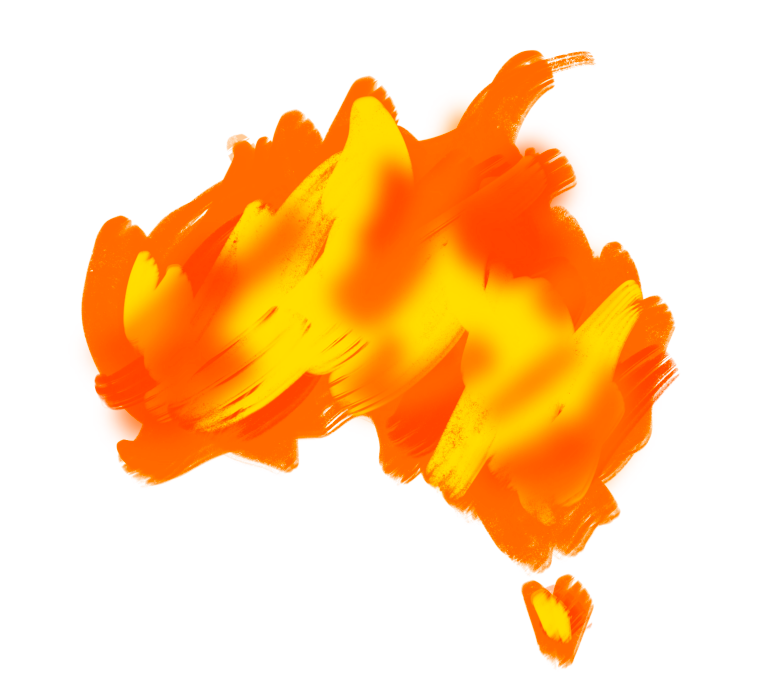You may have read over the word ‘rainforest’ without giving it much attention, but you should. The rainforest has never burned on this scale; in fact, it hasn’t really burned on any scale. In all the previous fires, not a single acre of rainforest was burnt. But this year that all changed. The rainforest became a wall of fire, with nothing left except barrenness. What was once a thriving ecosystem is lifeless. And it will continue to burn. It will burn next year. It will burn the year after that. And the year after that.
This isn’t like other natural disasters; you can’t just send aid to the victims and move to the next issue. These fires will continue to wreak havoc on everyday Australians, stripping people of their basic human right to clean air, stripping people of their basic human right to water, stripping people from their homes, sometimes stripping people from the only place that they have ever known. The smoke from the fires has produced almost 400 million tons of carbon dioxide, about 2/3 of Australia’s annual greenhouse gas emissions, forcing tens of thousands of people to evacuate. Hundreds of species of plants and animals unique to Australia are at risk of being burnt off the face of this earth. And this is just the start of the fire season, a long summer, filled with sleepless nights and endless fights. It may sound like there is no hope, and that the desolation and destruction of Australia are inevitable. You may think: what can one person do about this?
The answer is: you can do more than you think. As cynical as it may seem, I think it is important to understand the lessons that can be learned through Australia’s suffering. Why did this happen? The undeniable answer is climate change. The persistent record-breaking temperatures and lack of rain have allowed these fires to continue to burn, creating their own weather systems: clouds that trap heat, generate strong winds, and worst of all, lightning strikes that spark further fires.

Despite this, Australia continues to burn coal at an alarming rate. I’m not just going to sit here and act all high and mighty, pretending that I don’t live a life that is made more comfortable at the expense of the environment. My parents worked for a mining engineering company that made their profits off coal and iron ore. They worked with the trade of resources that has led to many of the environmental problems we see today. That’s a burden I bear, but not one I should. To tackle climate change we must first lose the shame. When we focus on ourselves and feel guilty for taking a shower for too long or leaving a light on, we forget that, as important as the individual is, we can make more change together.
I’m not saying that you shouldn’t try to diminish your carbon footprint, but that’s far from the only thing you can do. Talk to your parents about these issues. Ask them if they donate to any environmental organizations and nonprofits. No matter what your opinion is, discussion can lead to understanding and real, tangible progress.
Finally, know what you are fighting for, not just what you are fighting against. We can get too easily distracted by blaming those who we believe are the causes of our problems when we need to first acknowledge and understand the problem. We need to work together toward a common goal, a common vision for our future, a future where the kids will shout to the mountaintop about how their parents fought for their world.

